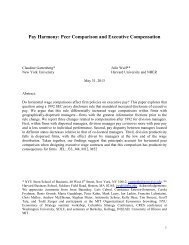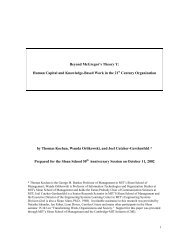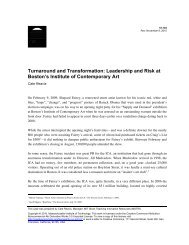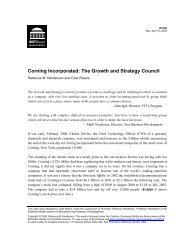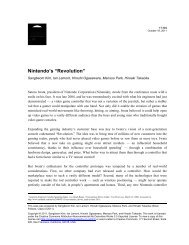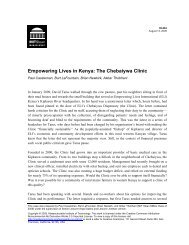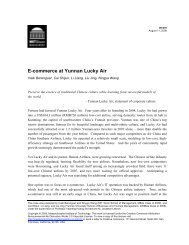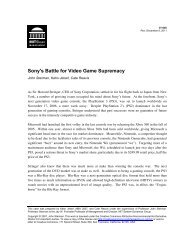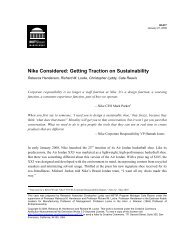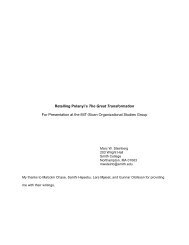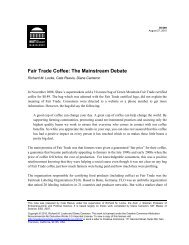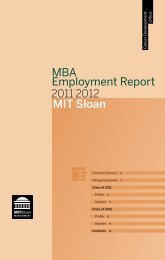Understanding earnings quality - MIT Sloan School of Management
Understanding earnings quality - MIT Sloan School of Management
Understanding earnings quality - MIT Sloan School of Management
Create successful ePaper yourself
Turn your PDF publications into a flip-book with our unique Google optimized e-Paper software.
accruals) that stems from the conflicts between controlling shareholders and minority shareholders<br />
is lower in countries with high protection <strong>of</strong> minority shareholders’ rights and strong legal<br />
enforcement. Francis and Wang (2008) find that <strong>earnings</strong> <strong>quality</strong> (measured by the magnitude <strong>of</strong><br />
discretionary accruals, the likelihood <strong>of</strong> reporting a loss, and timely loss recognition) is positively<br />
related to country-level investor protection, but only for firms with Big-four auditors. They suggest<br />
that investor protection affects <strong>earnings</strong> <strong>quality</strong> through the incentives <strong>of</strong> Big-four auditors (i.e.,<br />
litigation risk and reputation risk). Finally, Burgstahler, Hail, and Leuz (2006) document<br />
interactions between the effects <strong>of</strong> institutions on <strong>earnings</strong> management and the effects provided by<br />
public equity markets interact. Using a sample <strong>of</strong> private and public firms from 13 European Union<br />
countries, they find that private companies manage <strong>earnings</strong> more, consistent with less pressure for<br />
<strong>earnings</strong> <strong>quality</strong>. Stronger legal institutions curb <strong>earnings</strong> management. The Burgstahler et al.<br />
(2006) <strong>earnings</strong> management measures are similar to those used in Leuz et al. (2003).<br />
4.3 Consequences <strong>of</strong> country-level <strong>earnings</strong> <strong>quality</strong><br />
The three papers in our database that examine consequences <strong>of</strong> <strong>earnings</strong> <strong>quality</strong> at the<br />
country level focus on the <strong>earnings</strong> management element <strong>of</strong> <strong>earnings</strong> <strong>quality</strong>. Bhattacharya, Daouk,<br />
and Welker (2003) find that high country-level <strong>earnings</strong> <strong>quality</strong> measured by <strong>earnings</strong><br />
aggressiveness (i.e., accruals), loss avoidance, and <strong>earnings</strong> smoothness (measured following Leuz<br />
et al., 2003), are associated with higher country-level <strong>of</strong> cost <strong>of</strong> equity capital and lower trading<br />
volume. Their hypothesis assumes that these features <strong>of</strong> <strong>earnings</strong> are associated with greater<br />
opacity. Pincus, Rajgopal, and Venkatachalam (2007) find that the accrual anomaly, while a global<br />
phenomenon, is concentrated in four countries, Australia, Canada, the United Kingdom, and the<br />
U.S., all <strong>of</strong> which are common law countries. The accrual anomaly is positively associated with the<br />
78



